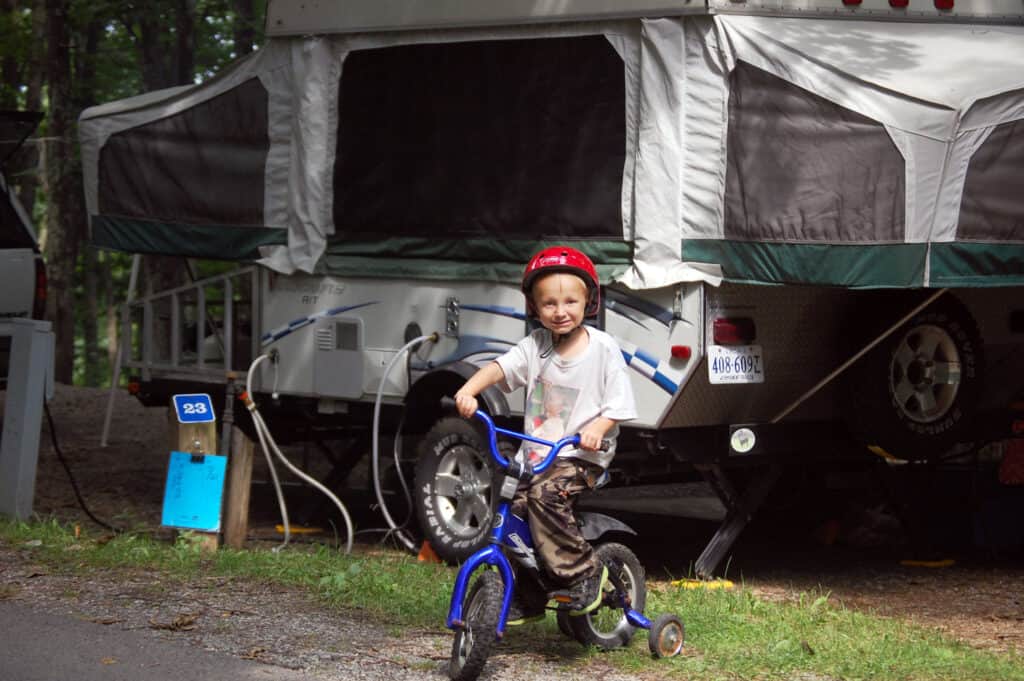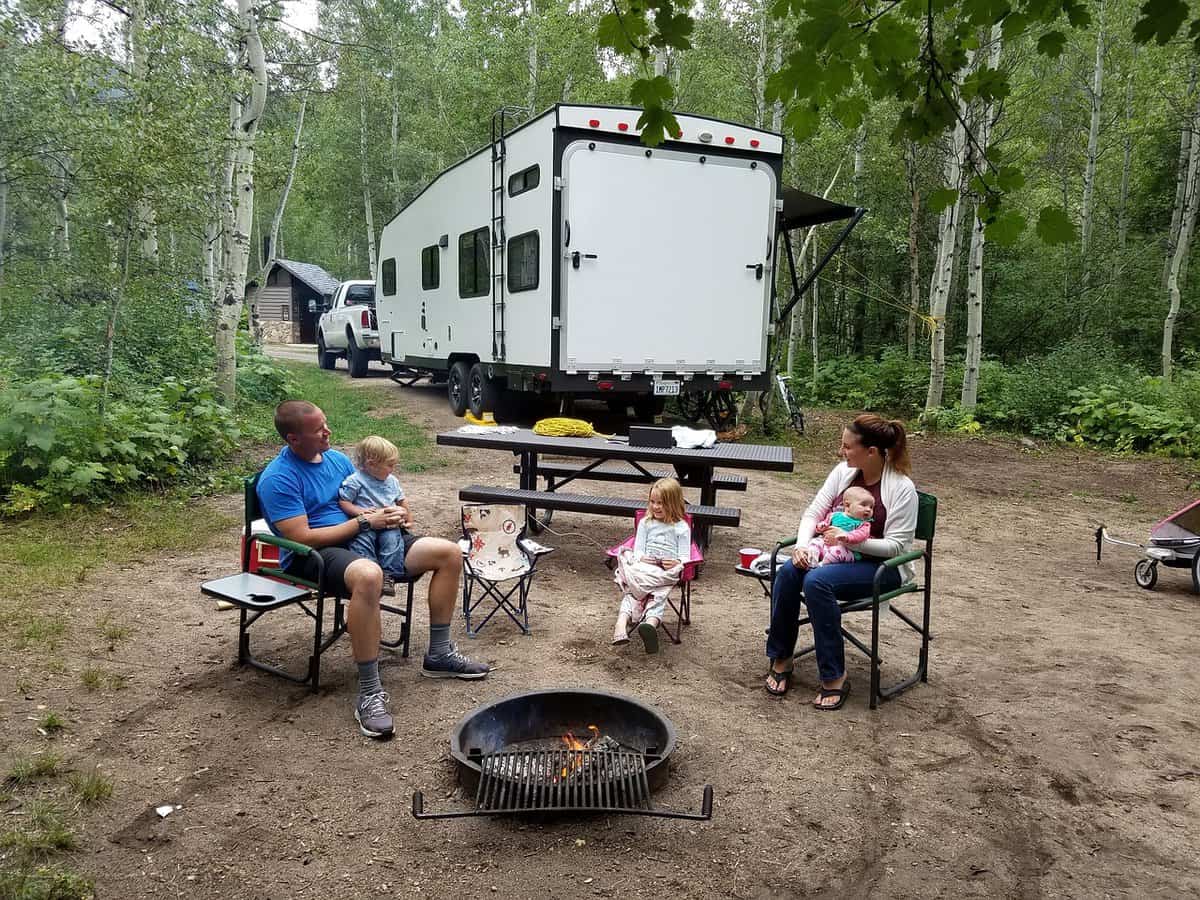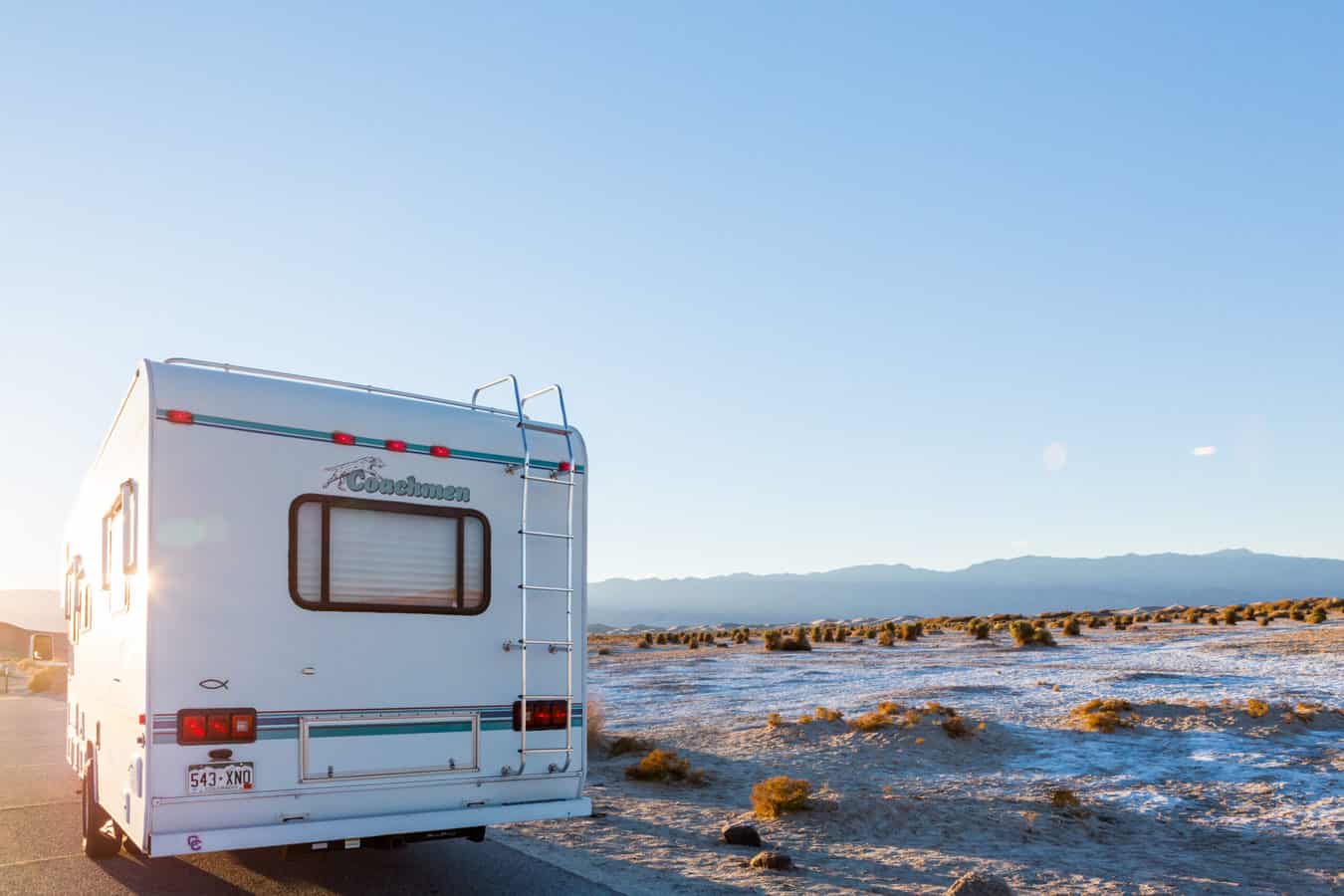
Road Schooling: Home School Options For The RVer
For many families that have decided to travel for a predetermined or indefinite amount of time in their RV, road schooling has become their form of home schooling. Cross-country sights and experiences become a big part of each child’s classroom, coupled with some degree of instruction. There is no cookie-cutter method to road schooling. What may work for one family isn’t necessarily the best approach for another.
With so many home school options to choose from, it’s no surprise that parents and guardians new to the concept can become easily overwhelmed. There are multiple components to understand about this alternative form of education. In an attempt to gain a better footing on the subject area, this article will address the following:
- The benefits of road schooling
- Legal issues
- Costs
- Various curriculum approaches
- Finding curriculum products
- Plus a bonus video from a road schooling family
What are the benefits of road schooling?
Road schooling allows children the opportunity to make connections between instruction and real world experiences. Families can make any pitstop, scheduled or impromptu, a teachable moment.
Representatives at time4learning.com explain, “Students don’t just read about the Constitution, they can view the original document. They can spend a day focusing on bats and echolocation when they learn that the next day they will be traveling near a bat conservation exhibit. Even stopping for a pizza can turn into a teachable moment about pepperoni pie and fractions.”
Another benefit of road schooling is that instruction and discovery is all dependent on your child’s learning. There are varying degrees of home school options that will be discussed later in the curriculum approaches section.
As a child develops new skill sets and processing information in a particular fashion, what and how curriculum is presented should follow suit. The beauty of road schooling is that families have the flexibility to modify instruction, switch curriculum, or focus on a particular subject or skill based on each child’s progress. This is quite possibly the best scenario for tailored, individualized instruction.
What does the law say about road schooling?
Laws pertaining to road schooling are on a state-by-state basis. The laws vary and can be opposing extremes: very constrictive to lax. Some states require mandated record keeping and test taking while states like Florida and Texas have minimal reporting procedures. In the case of traveling families, your domicile state is the determining factor with home school options.
Familiarizing yourself with the home school laws for your resident state should be a top priority. If the laws for your state have too many regulations and your family will be living and traveling in the RV full time, it might be optimal to look for another state of residence that goes along with your road schooling philosophy and goals.
How much does it cost to road school?
The short answer to this question is: it varies. Various home school options make educating as affordable or as expensive as you make it. For the sake of argument, timeforlearning.com created a list of items, including costs, to consider when setting up a road schooling program for your child.
“The average cost of homeschooling one child per year might fall within the following ranges:
- Curriculum: $350-$750
- Materials: $150-$300
- Field Trips: $100-$250
- Extracurriculars: $100-$500
- Approximate total cost per year per student: $700-$1800”
Note regarding materials: Especially if you are looking into online schools, not only is a laptop or tablet essential, but a reliable internet service is important.
Of course there are many ways families can save on expenses. Purchasing ebooks or used books can save money on materials. Libraries are a free source of literature and many times hold free after school programs.
Online resources like Khan Academy offer a plethora of free access to core subjects. Plus, the National Park America the Beautiful pass is only $80 a year and allows the entire family entrance to all parks.
How do I choose the best curriculum for my child?
As mentioned before, road schooling can take many forms. Each family will choose a learning approach that mirrors the goals they have set for each child’s learning and progress.
Before choosing a particular curriculum product or creating your own, it’s important to decide the teaching approach(es) appropriate for your child(ren). The style of instruction will determine the curriculum.
Jill Denkins, founder of fulltimefamilies.com wrote an in-depth article that outlines the various home school options regarding teaching approaches. The following is a brief explanation of each.
School at Home: This is the closest model to the traditional classroom. Learning takes place at a table with books and other typical classroom supplies. Curriculum is on par with age/grade level expectations and is conducted on a regularly scheduled basis.
Literature-Based School: This book-heavy approach focuses on building children’s understanding through various fiction and nonfiction publications, nature study and art.
Unit Studies: A theme or topic is taught at a time and incorporates all subjects in the curriculum. Components of math, reading, writing, history, etc. are utilized in an attempt to learn all the facets about the given topic.
Unschooling: This is completely child-directed. Routine or spontaneous activities are used as learning opportunities. Situations like cooking outdoors, learning about historical figures at a museum, and even helping with RV repairs can be considered daily lessons.
Eclectic Education: Sometimes it isn’t easy to choose just one approach to educating on the road. Oftentimes traveling families choose a combination of the above, structured and unstructured instruction. This eclectic education offers a more well-rounded approach to learning.
Online School: Some children prefer working online and perform better when they are given the reigns. Many online schools teach strictly towards state standards so older students reaching their final years of high school and planning to go to college might benefit from this instruction.
Where do I find curriculum products?
When it comes down to choosing the right curriculum program, Home School Legal Defense Association (HSLDA) suggests starting with Cathy Duffy’s curriculum review. Considered one of the most comprehensive collections of home school curriculum, HSLDA considers it a user-friendly source for quickly narrowing down possible programs.
HSLDA representatives explain,
“Before you dive in, you may want to have your child’s learning preference, your teaching style, educational philosophy, and your child’s educational goals handy.” This includes having your teenager’s high school plan handy for referencing. Likewise, if you have a child diagnosed with special needs and has an IEP (Individualized Education Plan) in place, specific materials and learning plans may be required for instruction.
Once you have settled on a few curriculum options, it’s a good idea to get a second opinion. You can learn about how a particular program works for other traveling families by consulting fellow RV families. There is a large online community of full-time RV families that are constantly sharing ideas and tips on home school options at fulltimefamilies.com.
You can also seek other opinions on social platforms like Facebook or road schooling related forums. General Google searches may yield YouTube videos and blogs with more comprehensive reviews. HSLDA offers consultation sessions with education experts if you become a member.
In one of their latest YouTube videos, full-time RVers and road schooling parents, Marc and Tricia Leach of Keep Your Daydream, present the basics on road schooling and answer the top ten questions they regularly receive from subscribers.
In the video, Tricia emphasizes the key component of road schooling, “…that the best part about home school is that you can focus on each individual piece. It’s not like you’ve graduated fifth grade. It’s you’re this far in this study. You’re this far in this. There’s room for growth in this area, and you have the time to develop your kid’s character, their education, at different rates. It doesn’t matter what grade you’re in.”
Recently, the team at RV Masterclass have added a Road Schooling option to their repertoire. You can also learn more about roadschooling in this Do It Yourself RV article. Also check out our previous article on 15 Tips For RV Camping With Kids.




